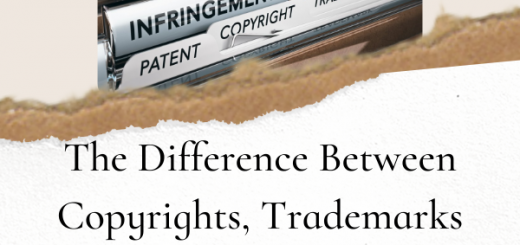How to Manage a Copyright by Kelley Way
 Today we welcome a returning guest writer to Writer’s Fun Zone, Kelley Way, who is stopping by to chat with us about “How to Manage a Copyright.” Enjoy!
Today we welcome a returning guest writer to Writer’s Fun Zone, Kelley Way, who is stopping by to chat with us about “How to Manage a Copyright.” Enjoy!
And now for a bit of necessary legalese: Please note that this article does not constitute legal advice, and that an attorney-client relationship is not formed by reading the article or by commenting thereon.
***
I’ve talked a bit about what a copyright is, and about what rights you have under copyright. But what exactly do you do with a copyright? Sure, it has value, but what could you do to maximize that value?
This is an important question if you ever want to sell the rights to your book. The price you get on the sale will depend heavily on the perceived value of your book. Even if you don’t want to sell, a valuable book usually means more sales and more profits.
MARKETING AND SALES
The first thing you should do is also the most obvious – sell a lot of books. The more popular your book is, and the more copies it sells, the more valuable the copyright to that book becomes.
Actually accomplishing this goal is tricky, as anyone who has published a book can attest. Having a quality book that others want to read is crucial, but it is only the foundation.
The rest involves getting that book into readers’ hands and getting people talking about it – in short, the dreaded “M” word.
Most authors hate the idea of marketing, but there’s really no other way to get books sold and to increase the value of your copyright. Hire someone to help you, if you really can’t stand the thought of doing your own marketing, but definitely don’t neglect it.
DERIVATIVE MARKETS
Derivative markets are also a great way to increase a book’s value. There’s a lot of money to be made in audiobooks, and of course everyone wants to see their book on the big screen, but those are only the tip of the iceberg for all the ways your story can be brought to the public eye.
Apps are increasing in popularity.
Translations into other languages (where there is a market for it) is a tried and true source of revenue. There can even be money in setting poems in your book to music. (If you don’t believe me, look up the soundtracks for Lord of the Rings or Hunger Games.)
Basically, if there’s a format other than a book that the public will go for, it’s a potential money-making opportunity for you. You can also license someone else to do these things, if you lack the interest or know-how to do them yourself.
None of that matters though, if people can sell or give away your book, or any of those other works, without your permission. A book that is readily available for free download is not going to be considered very valuable, even if profits from legitimate sales are good.
Your copyright must be protected, and your rights enforced, for it to be perceived as truly valuable.
STEPS TO MANAGE YOUR COPYRIGHT
REGISTER YOUR COPYRIGHT
So how do you do that? The first step is to register your copyright with the Copyright Office. This lets the world know that you have a copyright, and that you’re willing to take steps to enforce it. There are also several benefits if you end up having to take someone to court. Registration is fairly straightforward, and the fees are very reasonable, so there’s no reason why you shouldn’t do it.
PROTECT YOUR COPYRIGHT
You also need to be on the lookout for people selling or giving away your book without your permission. Unfortunately there is no agency whose mission is to find all infringing content there is to be found; this is up to you, or whoever you might hire to do this for you.
On the bright side, there’s a handy law that Congress passed about 20 years ago, the Digital Millennium Copyright Act (DMCA for short), that is very helpful for taking down infringing content found online.
Under the DMCA, a website host that is notified of infringing content on his site must take that content down ASAP, or he is at risk of being liable for infringement himself. A Google search for “DMCA takedown notice” will provide you with templates and advice on what needs to be in the notice to make it work.
If the infringing content is not online, or the DMCA notice fails for whatever reason, you can send a cease and desist letter – basically a letter that says “Stop infringing or I will sue you.” If you want to make it really scary you can have a lawyer write it. If that doesn’t work, the only other option is a lawsuit in federal court.
Like all things, the more effort you put into making your book valuable, the more value you will get out of it.
If you want help with the legal side of increasing your book’s value, you are welcome to email me at kaway@kawaylaw.com.
***
ABOUT THE AUTHOR
 Kelley Way was born and raised in Walnut Creek, California. She graduated from UC Davis with a B.A. in English, followed by a Juris Doctorate. Kelley is a member of the California Bar, and an aspiring writer of young adult fantasy novels. More information at kawaylaw.com.
Kelley Way was born and raised in Walnut Creek, California. She graduated from UC Davis with a B.A. in English, followed by a Juris Doctorate. Kelley is a member of the California Bar, and an aspiring writer of young adult fantasy novels. More information at kawaylaw.com.






